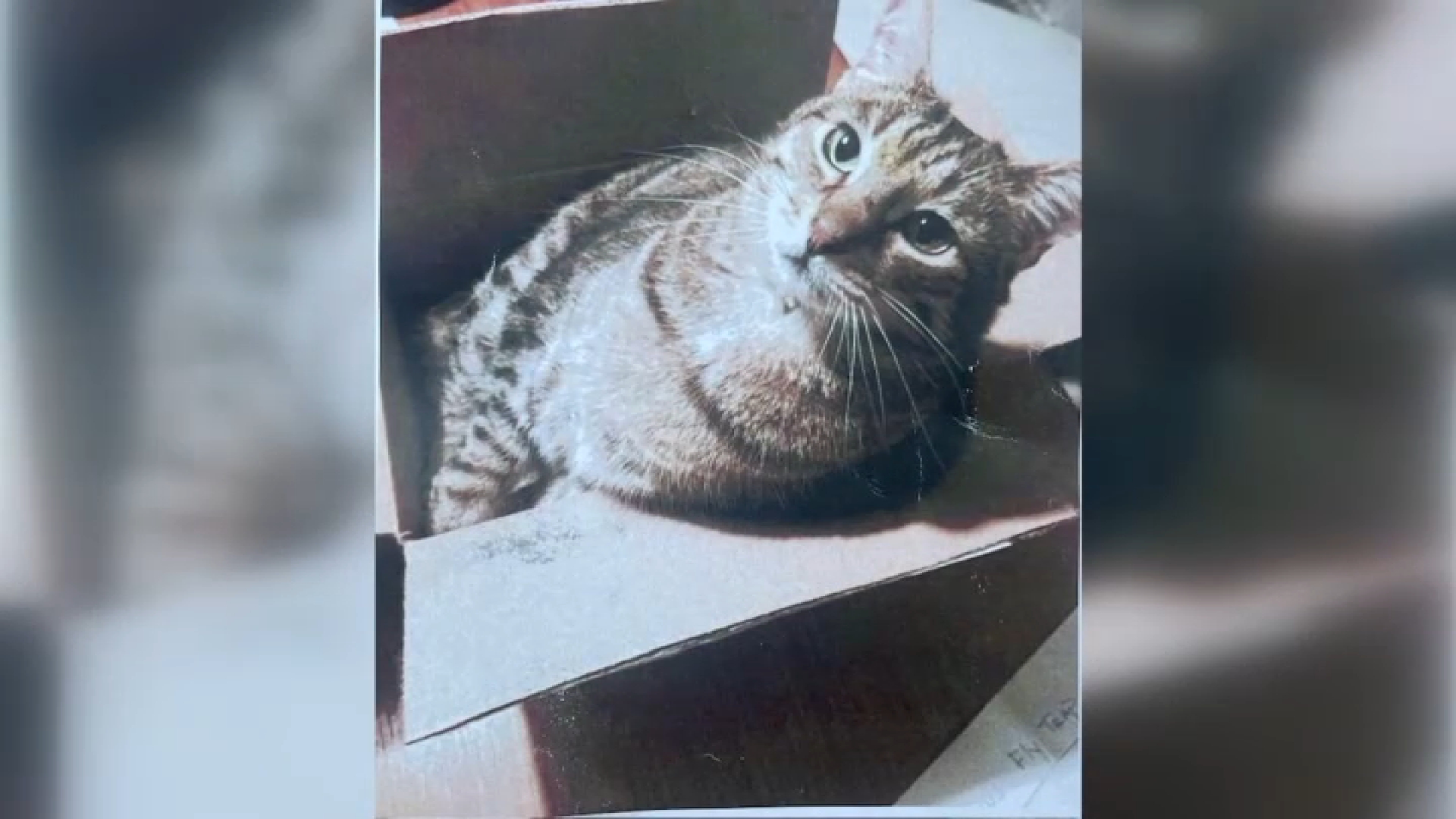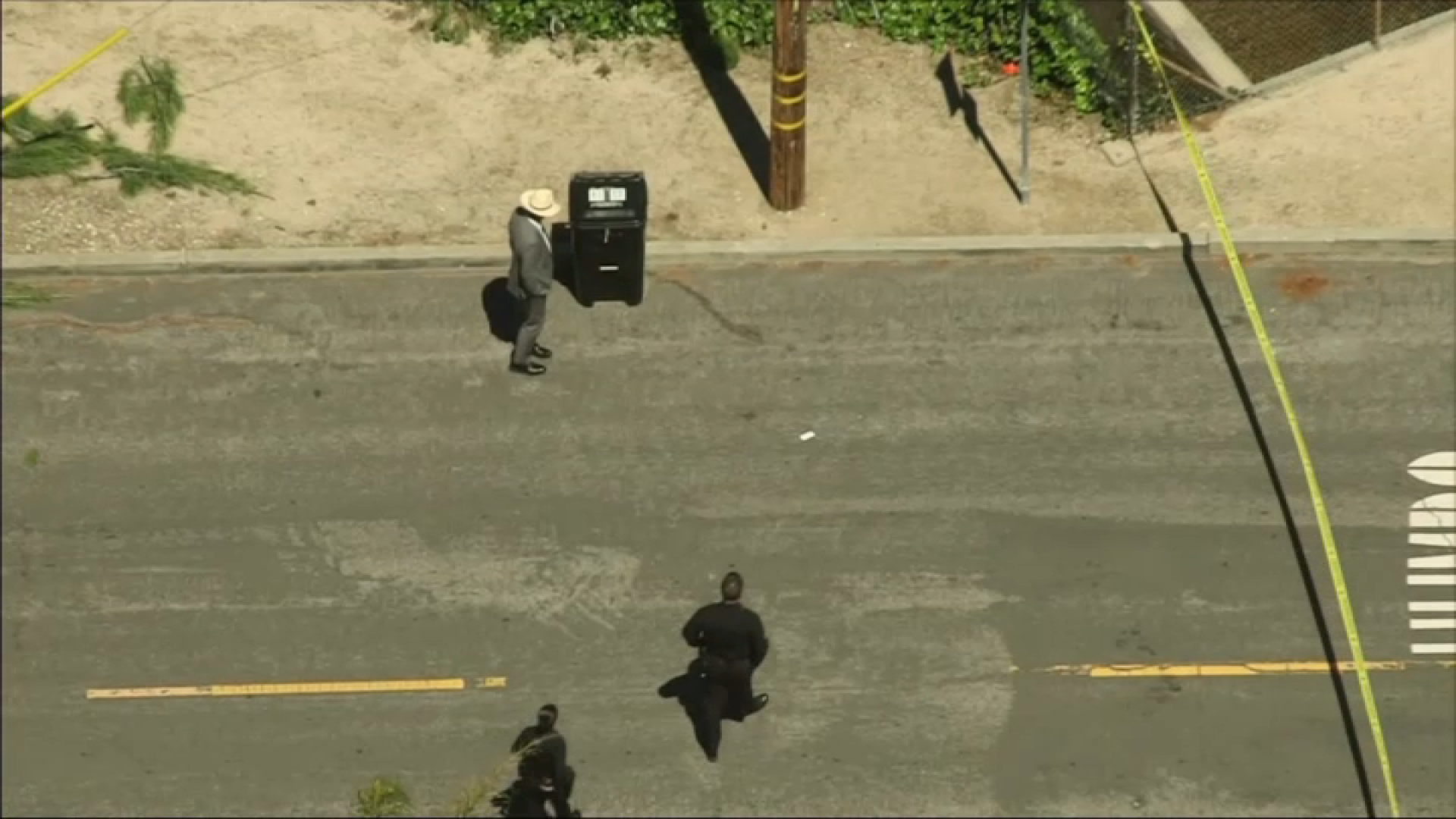Something new has begun appearing on the chests of uniformed LAPD officers between their badges and nameplates: body cameras.
Rollout began Monday at LAPD's Mission Division in the north San Fernando Valley. Offficers received final instruction on using the cameras during roll call training sessions. LAPD's plan is to equip 860 of its officers over the next month, first at Mission, next at Newton Division starting September 15, then at Central Traffic and some specialized divisions starting September 28.
Getting to this point has taken years of research, testing, and fundraising, and vehement discussion of policy.
The Taser body cameras and supporting equipment were purchased using $1.5 million in private donations raised by the Los Angeles Police Foundation. The system will be activated when officers are on the way to a call, said Capt. Todd Chamberlain.
"When they have any enforcement or investigative action in the field, the camera will be activated," said Chamberlain.
The city is also considering purchasing another 7,000 cameras to outfit the entire police department at a cost of about $10 million. Funding was included in this year's city budget but has not been appropriated, with city officials still waiting on federal grants that they hope will pay for half of the costs.
LAPD Chief Charlie Beck and Los Angeles Mayor Eric Garcetti ar expected to discuss the next steps at a media briefing they scheduled for Friday at Mission Station.
Body cameras in principle have broad support among law enforcement, civil libertarians, and community organizations as a vehicle for increasing trust. But there remain disagreements over policies addressing who gets access to the video and under what circumstances.
An initial booster of body cameras in Los Angeles, the American Civil Liberites Union dropped its support of the LAPD program after the Police Commission last April adopted a policy that for the most part prevents the public from seeing any of the video, unless it is made public during a court proceeding. The LAPD will treat the video as part of an investigation.
During the pre-follout pilot program, some officers wearing body cameras have been involved in controversial uses of force, including the March skid row encounter in which a homeless man named Charly Keunang was shot to death. Police said he was trying to grab one officer's gun from its holster. Though the incident was recorded from afar by at least two passers-by with cellphone cameras, and that video made public, Chief Beck has declined to release the body cam video.
Seattle Police have posted some body camera video on YouTube, but in some cases protecting privacy by obscurng faces.
Local
Get Los Angeles's latest local news on crime, entertainment, weather, schools, COVID, cost of living and more. Here's your go-to source for today's LA news.
LAPD officers will be encouraged to view body cam vidoes to assist in writing incident reports. The ACLU objected to this on the grounds that viewing video could enable an officer who has acted out of policy to "shade" statements to fit what can be seen.
"Allowing that does not increase public trust in investigations," said senior staff attorney Peter Bibring, ACLU director of police practices.
Seventy-four percent of respondent agree the public should see the video in cases of police misconduct, according to a poll commissioned by the American Civil Liberties Union of California released last week. Seventy-two percent said video should be available in use-of-force cases, 57 percent said it should be available on request and 52 percent said all body camera video should be available to the public "regardless of the context or circumstances of the interaction."
Nearly 85 percent of respondents were in favor of police wearing body cameras to record interactions with people, the poll showed.
"Use of the camera is going to become the new normal very soon," Chamberlain said.



